
If you are looking for the best affordable online Master’s in Gerontology degrees, you have come to the right place. Gerontology is a multidisciplinary field that focuses on the cultural, social, psychological, and physiological factors that impact human aging. Not to be confused with geriatrics, a medical field dedicated to treatment methods for elderly patients, gerontology is widespread and can be found in fields other than healthcare. For instance, gerontologists may hold positions in public policy, finance and economics, law, geography, and social services. Online master’s degrees in gerontology prepare graduates for this field by focusing on aging and its effects on society. Below we have ranked the top 20 best affordable online Master’s in Gerontology degrees for students considering this rewarding career path.
Methodology
In the following ranking, we strived to capture the balance between affordability and quality by scoring schools based on three core metrics: average cost of attendance, student-to-faculty ratios, and graduation rates. Regardless of the specific occupation you would like to pursue, once you have earned your online Master’s in Gerontology, there are many affordable programs to choose from. Since many factors go into making such an important decision, we decided to help by doing some of the hard work for you. We began by searching for the term “gerontology master’s degree” using the College Navigator tool at the National Center for Education Statistics (NCES). We then narrowed down the initial pool of 25 colleges and universities that matched this search term into the top 20 institutions based on the methodology. We also double-checked the information provided by the NCES with each school’s website to ensure accuracy.
Average Cost of Attendance
We understand that one of the first things prospective students look for in a program is the cost. After all, it is important to ensure that the tuition rate is affordable before spending a considerable amount of time researching the school and the programs in depth. However, while it may be tempting to choose the cheapest program on the list for the sake of saving money, it is important to make sure the school offers the major in which you are interested as well as opportunities for hands-on learning, internships, extracurriculars, or anything else you are looking for in a program. Below, we ranked tuition based on the cost of one academic year of study for online students using rates provided by the school’s websites.
Points:
Under $7,500: 5 points
$7,500 to $15,000: 3 points
$15,001 and above: 1 point
Student-to-Faculty Ratio
Knowing a school’s student-to-faculty ratio helps determine the learning environment at that particular institution. In other words, colleges with low ratios may be more likely to offer small classes with fewer students and, therefore, more opportunities for students to build relationships with their professors. On the other hand, those who attend universities with high ratios might find larger classes and more diverse academic offerings. While there are benefits and drawbacks to each, for this ranking, we awarded the most points to institutions that reported student-to-faculty ratios of 10 or fewer students per faculty member, according to NCES.
Points:
10:1 or less: 3 points
11:1 to 15:1: 2 points
Greater than 15:1: 1 point
Graduation Rate
Although many students look at admissions and acceptance rates to determine the likelihood of successfully enrolling in a program, few consider the importance of a school’s graduation rate. This number indicates how many students remained enrolled and graduated with their degree which is, ultimately, the goal. In most cases, schools with high graduation rates are keeping their students satisfied with their academic experiences, whether that is because they offer affordable programs, employ helpful and experienced faculty members, or provide the academic support students need to succeed. On the other hand, schools with low graduation rates may be falling short in some way, causing students to leave and finish their degrees at another institution. Therefore, we awarded the most points to colleges and universities with the highest graduation rates from NCES.
Points
More than 50 percent: 3 points
Between 30 percent and 50 percent: 2 points
Less than 30 percent: 1 point
Ranking Top 20 Best Affordable Online Master’s in Gerontology Degrees
20. University of Massachusetts-Boston
Boston, Massachusetts

Points: 4
Program Website
Established in 1852 as Boston State College, the University of Massachusetts-Boston is a public research university and the third-largest campus by enrollment in the five-school University of Massachusetts System. Recognized as one a high-value university for an online gerontology degree, UMass Boston offers a fully online master’s degree in the management of aging services. The curriculum provides an intimate learning experience and examines topics such as health, marketing, resource management, program development, service delivery, policy, the psychology of aging, organizational finance, advocacy, and program development and management. Students must complete a capstone course in an area such as finance, administration, program management, or analysis to graduate from the program. Most part-time students complete the 12-course program in fewer than three years, while full-time students can graduate in three semesters. This accredited, award-winning program is provided via the second-oldest graduate Department of Gerontology in the world.
Degree Options:
Management of Aging Services Master’s
Online Tuition: $18,888
Student-to-Faculty Ratio: 16:1
Graduation Rate: 48 percent
19. University of Missouri
Columbia, Missouri
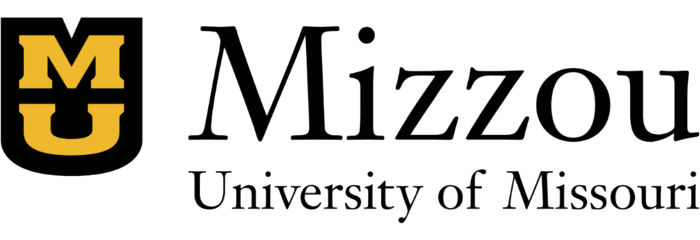
Points: 5
Program Website
The University of Missouri is a public land- and space-grant research university and the largest university by enrollment in the state. Founded in 1839, MU is also the flagship institution of the four-campus University of Missouri System. MU’s College of Human Environmental Sciences offers a cost-effective online Master of Arts in Human Development and Family Science with an emphasis in gerontology. Areas of study include research, the environment, public policy, health and nutrition, family systems, and adult development as they relate to older adults and their families. The top-value program is available entirely online with no campus visit requirements. Courses are semester-based and provided by multiple universities who take part in the Great Plains Interactive Distance Education Alliance (IDEA). Therefore, courses may have different start and end dates depending on which university is teaching the class. Students who take one or two classes per semester can graduate in two to three years.
Degree Options:
Master of Arts in Human Development and Family Science With an Emphasis in Gerontology
Online Tuition: $17,400
Student-to-Faculty Ratio: 17:1
Graduation Rate: 69 percent
18. Kansas State University
Manhattan, Kansas
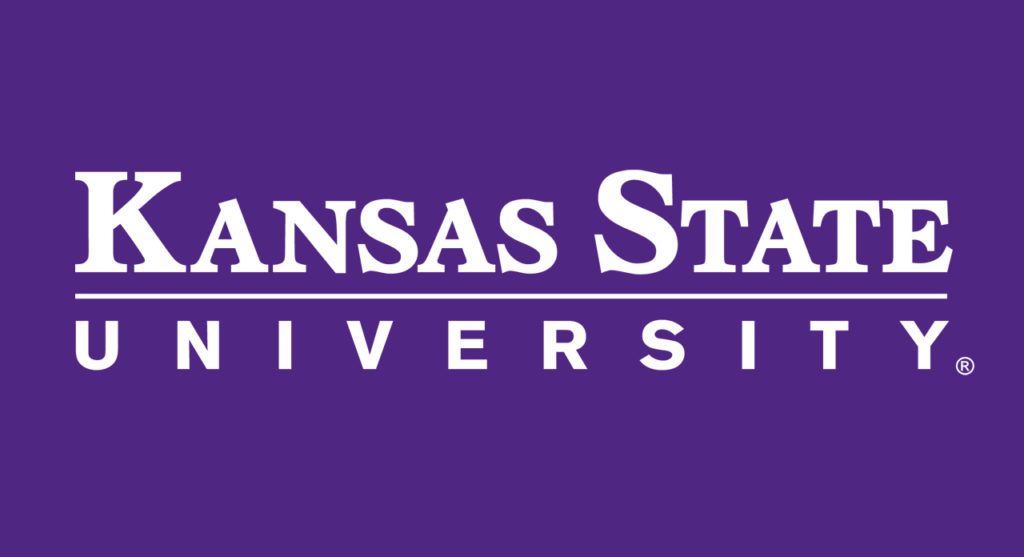
Points: 5
Program Website
Kansas State University is a public research institution of higher learning and an affordable university for a gerontology degree. Founded in 1863 as the state’s land-grant college and the first public university in Kansas, K-State offers a low-cost online Master of Science in Gerontology that requires 36 credits of study. The program is provided through the Great Plains Interactive Distance Education Alliance (IDEA), meaning that courses may be taught by universities other than K-State. Those who earn their degree from K-State will graduate with a master’s degree in human development and family science with a specialization in gerontology. The program is designed to prepare students who will be involved in research or education related to aging issues as well as those who wish to work directly with older patients. The curriculum aligns with the core competencies set by the Association for Gerontology in Higher Education.
Degree Options:
Master of Science in Gerontology
Online Tuition: $17,266
Student-to-Faculty Ratio: 18:1
Graduation Rate: 64 percent
17. Oklahoma State University
Stillwater, Oklahoma

Points: 5
Program Website
Students seeking a low-cost online gerontology degree may consider Oklahoma State University, a public research university that was founded in 1890 as Oklahoma Agricultural and Mechanical College. OSU offers a 36-credit-hour Master of Science in Human Development and Family Science with a concentration in gerontology that can be completed in three years by taking one or two courses per semester. The curriculum focuses on the social, mental, and physical changes in people as they age. Areas of study include family systems, aging and families, the economics of aging and public policy, adult development and aging, nutrition and physical activity in aging, and program evaluation and research methods. Students are required to complete a master’s creative component in the form of a practicum experience before graduating from this top program.
Degree Options:
M.S. in Human Development and Family Science: Gerontology
Online Tuition: $15,171
Student-to-Faculty Ratio: 19:1
Graduation Rate: 61 percent
16. Webster University
Webster Groves, Missouri

Points: 6
Program Website
Founded in 1915 as Loretto College, Webster University is a private, nonprofit institution of higher education and a top choice among graduate students seeking a low-cost online gerontology degree. Webster offers an economical Master of Arts in Gerontology that draws upon several disciplines such as the natural sciences, political science, economics, the behavioral and social sciences, and management. The curriculum is comprised of gerontology core courses and electives that allow students to develop gerontological knowledge in the areas of administration, management, program development, consulting, and direct service. Students must complete 36 credit hours of study in the psychology and physiology of aging, research and assessment, social science perspectives, and program management.
Degree Options:
Gerontology (MA)
Online Tuition: $23,400
Student-to-Faculty Ratio: 12:1
Graduation Rate: 59 percent
15. Brenau University
Gainesville, Florida

Points: 6
Program Website
Founded in 1878, Brenau University is a private institution of higher learning and a cost-effective, accredited university for an online gerontology degree. Through its College of Health Sciences, Brenau provides a high-value online Master of Science in Applied Gerontology that requires 30 semester hours of study. The interdisciplinary, innovative program is available entirely online and features core courses in communication, the psychology of aging, physical aspects of aging, cultural and social issues of aging, and effective communication with the elderly. Students may tailor the curriculum through electives in areas such as entrepreneurship, leadership, management, law, and pharmacotherapy. Graduates are prepared to work in various aspects of healthcare such as nursing, biology, psychology, geriatric care management, and occupational therapy as well as in social work, business, and the law.
Degree Options:
Master of Science in Applied Gerontology
Online Tuition: $20,850
Student-to-Faculty Ratio: 10:1
Graduation Rate: 43 percent
14. University of Indianapolis
Indianapolis, Indiana

Points: 6
Program Website
The University of Indianapolis is a private university affiliated with the United Methodist Church. Founded in 1902 as Indiana Central University, UIndy offers a high-value online graduate gerontology degree in the form of a Master of Science. The program offers both depth and breadth in promoting a holistic and positive view of aging, helping students to understand that aging is part of the life course and that what happens early in life can affect the later years. Students may select a concentration in either applied public policy or aging in place. The program culminates in a capstone seminar, and a practicum experience is required for those with no prior experience volunteering or working with the older adult population. UIndy’s cheap online M.S. in Gerontology has been designated as a Program of Merit (POM) from the Academy for Gerontology in Higher Education (AGHE). The program is available entirely online and includes opportunities for networking and service through membership in the UIndy chapter of Sigma Phi Omega, the national professional and academic honor society in gerontology. Students may complete the 36-credit-hour program within 18 months of full-time study.
Degree Options:
Master of Science in Gerontology
Online Tuition: $16,200
Student-to-Faculty Ratio: 13:1
Graduation Rate: 60 percent
13. McDaniel College
Westminster, MD

Points: 6
Program Website
McDaniel College is a private liberal arts college that was established in 1867 as Western Maryland College. Recognized as one of the most affordable colleges for a gerontology degree, McDaniel offers an inexpensive online Master of Science in Gerontology that provides graduate students with the knowledge to assess gerontological research, advise health organizations, and inform policy. They also hone the skills they need to care for the elderly. Beyond the classroom, students have the opportunity to present at national conferences and establish themselves as experts in the field. After completing the 36-credit-hour curriculum, including a thesis or capstone experience, graduates are prepared for leadership positions in the private or public sector where gerontological knowledge is critical. The program can be completed on-campus, online, or a combination of the two delivery methods. Students have access to the Center for the Study of Aging, the source for innovative educational opportunities and a clearinghouse for the study of aging issues.
Degree Options:
Gerontology, M.S.
Online Tuition: $15,300
Student-to-Faculty Ratio: 11:1
Graduation Rate: 67 percent
12. University of Louisiana at Monroe
Monroe, Louisiana
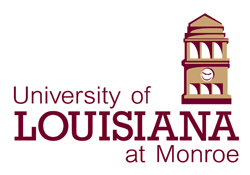
Points: 6
Program Website
Established in 1931, the University of Louisiana at Monroe is a public university and a member of the University of Louisiana System. Students seeking a high-value online gerontology degree can pursue a 36-credit-hour Master of Arts in Gerontology. The 21-hour core curriculum is comprised of courses in programs and public policy, social gerontology, the biology of aging, and a seminar in gerontology that is offered as a capstone course. Students then choose one of six areas to complete a 15-hour concentration: grief care management, mental health, small business management, long-term care administration, aging studies, or program administrator. Those who choose the long-term care specialization and who are not working full-time in an aging-related service will be required to complete a state-mandated administrator-in-training (AIT) program.
Degree Options:
Master of Arts in Gerontology (MA)
Online Tuition: $15,000
Student-to-Faculty Ratio: 20:1
Graduation Rate: 44 percent
11. Wichita State University
Wichita, Kansas

Points: 6
Program Website
Wichita State University is a public research university and a top choice among graduate students seeking a top-value degree in gerontology. WSU’s 30-credit-hour Master of Arts in Aging Studies incorporates several perspectives from disciplines concerned with the social, mental, and physical aspects of life. Students can choose from concentrations in administration, public health, and social science. Depending on the plan of study, graduate students may be eligible to incorporate the following certification and licensure opportunities in the curriculum: Certified Senior Advisor, Social Service Designee, Licensed Nursing Home Administrator (LNHA), Operator of Assisted Living, and Activities Director. Students can complete the program in fewer than two years if enrolled full-time, and all three cost-effective concentrations are available entirely online.
Degree Options:
MA in Aging Studies
Online Tuition: $12,208
Student-to-Faculty Ratio: 19:1
Graduation Rate: 47 percent
10. University of North Texas
Denton, TExas

Points: 7
Program Website
The University of North Texas is a public research university that was founded in 1890 as Texas Normal College and Teacher Training Institute. UNT’s College of Health and Public Service offers an economical online Master of Science in Health Services Administration that is comprised of 12 classes for a total of 36 credit hours of study. The curriculum includes core courses that encompass the field of health services administration, while students can choose from several four-course concentration areas such as applied gerontology, health data analytics, health informatics, and rehabilitation. Specifically, the applied gerontology concentration features coursework in the processes of aging, case management, and local, state, and federal programs in aging. Students also examine program planning, needs assessment, and evaluation in services for the elderly. The low-cost program is available entirely online, and full-time students can earn their degree in 18 months or fewer.
Degree Options:
Health Services Administration Master of Science
Online Tuition: $13,083
Student-to-Faculty Ratio: 25:1
Graduation Rate: 53 percent
9. University of Florida
Gainesville, Florida

Points: 7
Program Website
The University of Florida is a public space-, sea-, and land-grant research university. Founded in 1853, it is also a senior member of the State University System of Florida and recognized as one of the most affordable universities for an online gerontology degree. Through UF’s Department of Aging and Geriatric Research, graduate students can earn a cheap online Master of Science in Gerontology. No prior clinical experience is required, and students can earn their degree within two years. The online program offers a personalized and comprehensive gerontology-based curriculum. Three specialty tracks, including medical physiology, psychosocial gerontology, and geriatric care management, cover psychological, sociological, epidemiological, physiological, and clinical approaches.
Degree Options:
MS in Gerontology
Online Tuition: $12,740
Student-to-Faculty Ratio: 18:1
Graduation Rate: 90 percent
8. North Dakota State University
Fargo, North Dakota

Points: 7
Program Website
North Dakota State University, founded in 1890 as North Dakota Agricultural College, is a public research university and the flagship campus of the North Dakota State University System. One of the largest universities by enrollment in the state, NDSU offers a high-value online master’s degree in gerontology through the Great Plains Interactive Distance Education Alliance (IDEA). This initiative allows multiple universities to pool their resources together, meaning that not all courses will be taught by the same institutions. The 36-hour online gerontology program features core courses in adult development, environments and aging, aging in the family setting, perspectives in gerontology, nutrition and physical activity in aging, and economics, public policy, and aging. Students also complete a program evaluation and research methods course as well as a professional seminar in gerontology. A practicum experience is required for graduation.
Degree Options:
Master’s Degree in Gerontology
Online Tuition: $11,239
Student-to-Faculty Ratio: 19:1
Graduation Rate: 58 percent
7. University of Utah
Salt Lake City, Utah

Points: 7
Program Website
Established in 1850, the University of Utah is a public research institution of higher learning and Utah’s flagship university. Recognized as a top school for an affordable distance education gerontology degree, U of U offers an inexpensive online Master of Science in Gerontology that can be completed in one or two years by taking classes on a full- or part-time basis, respectively. Required core courses cover topics such as the physiology and psychology of aging, social and public policy and aging, health and optimal aging, research methods in aging, and service agencies and programs for older adults. All students complete a gerontology practicum experience. The master’s thesis option requires 33 credits of study, while the master’s project option requires 34 credits.
Degree Options:
Master of Science in Gerontology
Online Tuition: $11,183
Student-to-Faculty Ratio: 17:1
Graduation Rate: 70 percent
6. Iowa State University
Ames, Iowa
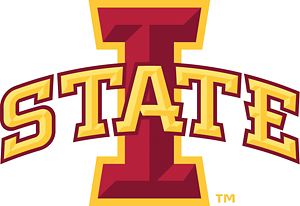
Points: 7
Program Website
Iowa State University of Science and Technology, known simply as Iowa State University, is a public space- and land-grant research university and the largest university by enrollment in the state. Established in 1858 as Iowa Agricultural College and Model Farm, Iowa State offers a cheap online master’s degree in family and consumer sciences with a specialization in gerontology. Required areas of study include aging in the family, environments and aging, nutrition and physical activity in aging, adult development, program evaluation and research methods, and economics, public policy, and aging. Students must also complete a professional seminar and practicum experience in gerontology. This best-value program requires 36 credits of study and is provided through the Great Plains Interactive Distance Education Alliance (IDEA), a consortium of universities that come together to offer fully online degrees. Graduates are prepared to either work directly with the aging population or to get involved in research and education related to older adults.
Degree Options:
Master of Family and Consumer Sciences With Gerontology Specialization
Online Tuition: $10,990
Student-to-Faculty Ratio: 19:1
Graduation Rate: 75 percent
5. University of Nebraska Omaha
Omaha, Nebraska

Points: 7
Program Website
The University of Nebraska Omaha is a public research university that was founded in 1908 as the University of Nebraska. UNO is recognized as one of the most affordable universities for an online gerontology degree, offering a Master of Arts in Social Gerontology that includes both a thesis and a non-thesis option. The thesis path is designed for those looking to gain additional insight and knowledge from research in the field of gerontology and for students who wish to research on their own. The non-thesis path is designed for practitioners who are either currently working or looking to work with elders in some capacity. Students of this high-value university develop an understanding of normal and abnormal age-related changes. This option also allows students to evaluate, implement, and design programs for elders and their families. Two dual degree programs are also available in which students can combine a master’s in social gerontology degree with either a Master of Legal Studies or a Juris Doctor (J.D.) degree.
Degree Options:
Master of Arts in Social Gerontology
Online Tuition: $10,695
Student-to-Faculty Ratio: 15:1
Graduation Rate: 48 percent
4. University of North Carolina at Greensboro
Greensboro, North Carolina
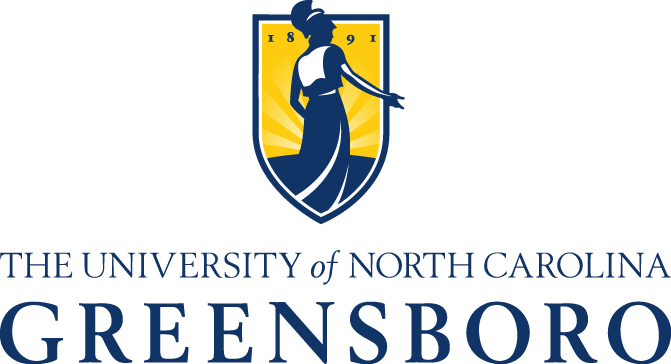
Points: 7
Program Website
Established in 1891 as the State Normal and Industrial School, the University of North Carolina at Greensboro is a public research university and a member of the University of North Carolina System. A top choice among graduate students seeking a best-value online gerontology degree, UNCG’s online Master of Science in Gerontology takes an interdisciplinary, applied approach to the study of aging. The program is available entirely online — the only 100 percent online gerontology master’s degree in the state. The 30-credit-hour curriculum consists of 7-week courses that emphasize applied learning. This top gerontology program aims to apply knowledge, research, and teach through collaborative relationships with businesses, community organizations, and academic departments to enrich the lives of elders and their families.
Degree Options:
MS in Gerontology
Online Tuition: $8,999
Student-to-Faculty Ratio: 17:1
Graduation Rate: 53 percent
3. Texas State University
San Marcos, Texas

Points: 7
Program Website
Texas State University is a public research institution of higher education that was established as the Southwest Texas State Normal School in 1899. Today, it is recognized as the largest institution by enrollment in the Texas State University System as well as the fifth-largest university in the state. Students seeking an inexpensive online gerontology degree can pursue Texas State’s online Master of Science in Dementia and Aging Studies degree. The 33- to 36-hour interdisciplinary program offers three concentrations that emphasize different courses and provide distinct career outcomes: dementia and long-term care, research, and practitioner. Graduates are prepared to conduct research on aging and dementia or pursue careers in which they manage various organizations, agencies, programs, and communities to serve the growing aging population.
Degree Options:
Master of Science in Dementia and Aging Studies – Online
Online Tuition: $8,449
Student-to-Faculty Ratio: 22:1
Graduation Rate: 55 percent
2. Texas Tech University
Lubbock, Texas

Points: 7
Program Website
Founded as Texas Technological College in 1923, Texas Tech University is a public research university and the main campus of the four-school Texas Tech University System. Offered by the College of Human Sciences, Texas Tech’s low-cost online Master of Science in Human Development and Family Studies features an emphasis on gerontology that requires 36 hours of study. The program focuses on interpersonal relationships in multiple contexts as well as the development of the individual across the lifespan. Core courses cover nutrition and physical activity in aging, environments and aging, aging in the family setting, adult development, and economics, public policy, and aging. Texas Tech offers the affordable online master’s degree gerontology concentration via the Great Plains Interactive Distance Education Alliance (IDEA).
Degree Options:
Master of Science in Human Development and Family Studies, Emphasis on Gerontology
Online Tuition: $8,015
Student-to-Faculty Ratio: 20:1
Graduation Rate: 60 percent
1. Eastern Illinois University
Charleston, Illinois
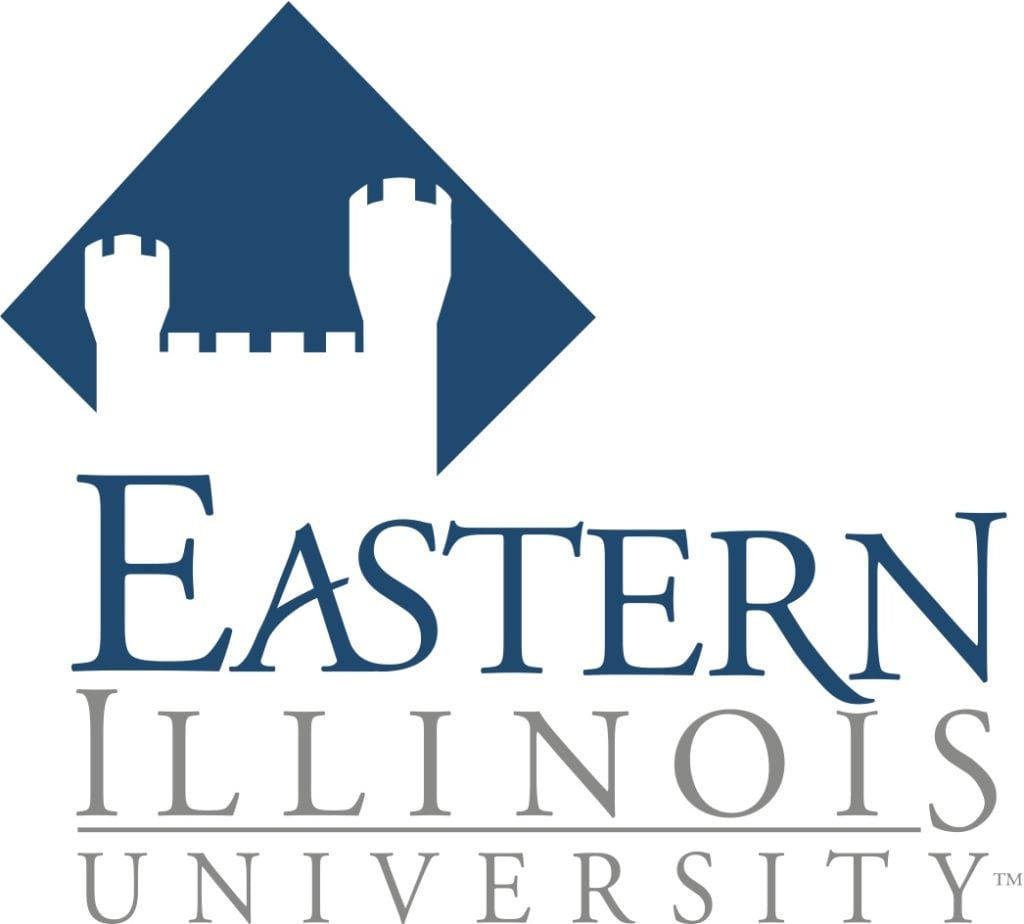
Points: 8
Program Website
Founded in 1899 as Eastern Illinois State Normal School, Eastern Illinois University is a public institution of higher education that tops our list of the most affordable universities for an online gerontology degree. EIU’s Master of Arts in Aging Studies is one of only four graduate programs in gerontology/aging studies to have earned the National Program of Merit (POM) designation from the Association of Gerontology in Higher Education. The 18-month multidisciplinary program features core coursework in areas such as health and aging, communication and aging, aging policy in action, research methods, the societal theories of aging, psychological processes of aging, and physical activity and aging. All students of this best gerontology master’s must complete one of the following: masters thesis, independent study project, or an aging studies internship.
Degree Options:
M.A. in Aging Studies
Online Tuition: $9,195
Student-to-Faculty Ratio: 13:1
Graduation Rate: 58 percent
Frequently Asked Questions
What are the Career Options for an Online Master’s in Gerontology Degree?
Students who graduate with an online master’s degree in gerontology are qualified for many top-level positions. However, eligibility will ultimately depend on other factors like the city and state of employment, the size of the company, level of experience in the field, and level of education. Some of the most common career pathways in gerontology include:
Occupational Therapist
Medical and Health Services Manager
Social Worker
Medical Scientist
Social and Community Service Manager
Retirement Plan Specialist
Physical Therapist
Dietitian and Nutritionist
Postsecondary Teacher
Adult Care Specialist
Recreational Therapist
The demand for qualified gerontologists has increased over the past few years, namely due to the aging baby boomer population. According to the Administration for Community Living, there are 50.9 million elderly men and women over the age of 65 living in the U.S. as of 2017, the most recent year for which data is available. This number is expected to reach 94.7 million in 2060. By 2040, there will be about 80.8 million elderly individuals — more than twice the number of older persons in 2000. Therefore, the employment outlook for not only gerontologists but all gerontology-focused occupations is strong.
What is the Salary Potential for an Online Master’s in Gerontology Degree?
As we have seen, earning an online master’s degree in gerontology can open doors to many careers. Therefore, it can be difficult to pinpoint a specific salary that one can expect after graduating from these programs. Several factors influence earnings, including the level of education, area of concentration or specialization, and whether the professional has any experience in the field. Employer and location also play a role in how much one can expect to make. To learn more about salary potential for an online Master’s in Gerontology degree, we turned to the U.S. Bureau of Labor Statistics (BLS) for data.
According to the BLS, medical and health services managers earned $99,730 as of May 2018. The highest 10 percent earned more than $182,600, while the lowest 10 percent earned less than $58,680. The median annual wages for medical and health services managers were highest in the following industries:
- Government: $110,460
- Private, local, and state hospitals: $108,730
- Outpatient care centers: $92,390
- Physicians’ offices: $90,920
- Residential care and nursing facilities: $84,260
The BLS also reports that physical therapists earned $87,930 per year, with the top 10 percent bringing home more than $123,350 and the bottom 10 percent earning less than $60,390. Medical scientists earned a similar salary, raking in $84,810 per year. Other occupations and their respective annual median salaries as of May 2018 include:
- Occupational Therapists: $84,270
- Social and Community Service Managers: $65,320
- Dietitian and Nutritionists: $60,370
- Social Workers: $49,470
- Recreational Therapists: $47,860
What Will You Learn About in an Online Master’s in Gerontology Degree Program?
A master’s degree in gerontology prepares students for many professional settings. Those pursuing a career in medical or academic research will learn how to evaluate, analyze, and collect data related to different aspects of aging. Master’s tracks also prepare students who wish to work in fields like health management, counseling, and community- and social-based services. Keep in mind that the curriculum requirements will vary depending on the school and program. For instance, some institutions offer a straightforward Master’s in Gerontology, while others provide a gerontology specialization within a broader master’s degree in social services or public health. Depending on the program, concentrations may be available in areas such as medical and health technology, occupational therapy, social work, psychology, biology, and public health. Some courses to expect include:
- Ethics
- Management of Programs for Seniors
- Economic Issues Affecting Senior Adults
- The Physiology and Psychology of Aging
- Aging Policy and Services
In addition to completing coursework, Master’s in Gerontology degrees generally require graduate students to undergo supervised, hands-on training and learn from experienced professionals via a practicum experience; a master’s thesis project, internship, research project, or capstone course may also be included as part of the curriculum requirements. Even with the in-person training necessary to earn this degree, many students can earn their Master’s in Gerontology degree online. Distance learners follow the same curriculum as their on-campus counterparts, and online students are eligible to compete for the same jobs as those who earn a traditional degree.
Choosing an online master’s degree in gerontology is a personal decision, and each student must decide whether a prospective school’s strengths match his or her professional goals and academic needs. However, we hope that the above list of ranked schools serves as a helpful starting point in the search for an affordable online Master’s in Gerontology degree in the U.S.
AS Staff
This concludes our ranking of the top 20 best affordable online master’s in gerontology degrees.
Other Rankings of Interest:
- 25 Best Affordable Master’s of Nursing Online Degrees
- 25 Most Affordable Online Master’s of Healthcare Administration and Management Degrees
- 20 Best Affordable Healthcare Administration and Management Online Degree Programs
- What Can I Do with a Bachelor’s in Gerontology?
- 20 Most Affordable Online Master’s-Granting HBCUs
- The 50 Most Affordable Colleges with the Best Return
- The 20 Most Affordable Online Colleges
 The Best Colleges
The Best Colleges The Lowest Costs
The Lowest Costs The Highest Returns
The Highest Returns